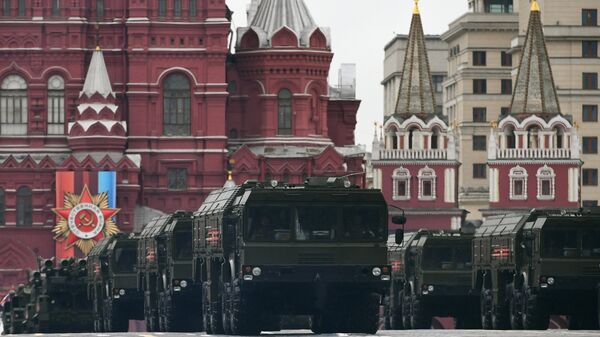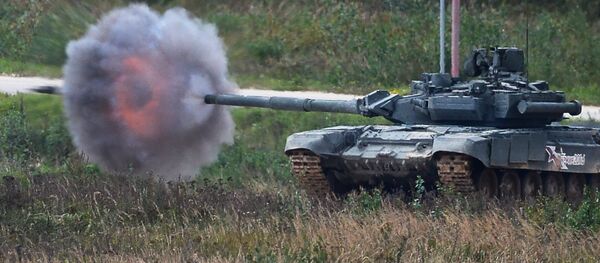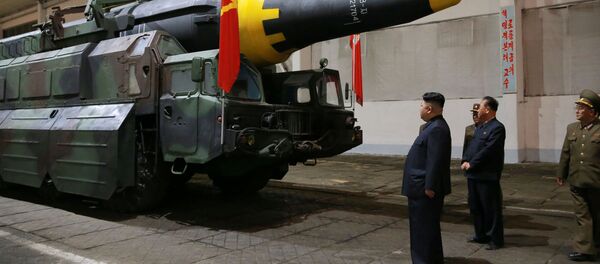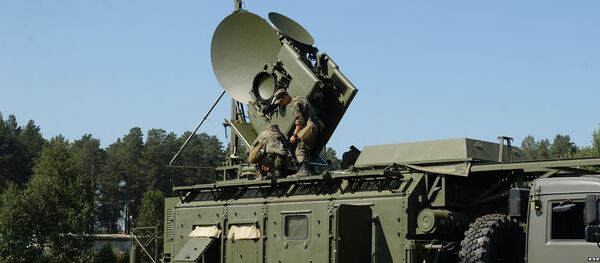On Wednesday, Dmitri Shugaev, head of Russia's Federal Service for Military-Technical Cooperation, confirmed that several countries have shown an interest in buying the Iskander SRBM system.
"I can confirm that there are applications, but it's too early to speak of them," Shugaev said, speaking at a press conference on the results of the ARMY-2017 arms expo, which recently wrapped up outside Moscow.
"Naturally, Iskander's deployment in the Russian Armed Forces seriously livens up those who consider us as their adversaries. This speaks to the fact that we have a very serious weapon, undoubtedly, and attracts the interest of our foreign partners," the official added.
At the same time, Shugaev said that Moscow adheres to a selective "filtration" process, connected to its international obligations, about which countries are eligible to actually purchase the missile system.
One of the system's main advantages is the ability of its missiles to perform evasive maneuvers in terminal flight stage and release decoys, allowing it to penetrate dense enemy air and missile defense networks.
Intrigue regarding the possible sale of the missile system abroad started in 2015, when Rosoboronexport officials said that negotiations were underway on the sale of Iskander-Es (the export version of the system with reduced range characteristics of between 50-280 km), to Saudi Arabia. Later that year, Rostec Corporation CEO Sergei Chemezov denied that such negotiations were underway. In June 2016, Chemezov said that Iskander's export was completely banned.
However, a few months later, Iskander systems were snapped during the Independence Day parade in Yerevan, Armenia, a Russian ally in the Collective Security Treaty Organization (CSTO) alliance.
In light of Shugaev's remarks, and the confusion surrounding the Iskander's export status, Russia's Svobodnaya Pressa online newspaper turned to the experts for some clarity.
Speaking to the publication, Andrei Frolov, editor-in-chief of 'Arms Export' magazine, explained that while showing interest in Iskander was one thing, the prospects for its actual delivery was something else entirely.
The expert stressed that amid the broad availability of other short-range ballistic missile systems, what drives continuing interest in the Iskander is its ability to punch through enemy air and missile defenses.
"Because Iskander's missiles are difficult to knock down by enemy air and missile defense systems, the country that acquires them receives a powerful military argument. This is why Iskanders appeared in Yerevan – to ensure a balance of forces in Armenia's confrontation with Azerbaijan. Because Baku now understands that if anything should happen, an Iskander missile can fly to the presidential palace."
As far as interest from other countries was concerned, Frolov said that everything depends on the local and regional geopolitical and strategic situation, whether the country has its own domestic missile technology, and whether or not it is already a recipient of US missile systems.
"As for Saudi Arabia, its missile forces are armed with Chinese medium-range missiles. Hypothetically, if Moscow were to supply Riyadh with Iskanders, the balance of power would not change. From the technological point of view, there is some risk, concerning, for example, the flight management system. However, given that Iskanders were used in Georgia, the Americans could have collected the remains of the missiles to see their internal components. It's another thing that there is a political factor at play, and Iran, for example, may ask Moscow not to supply the missiles to Riyadh."
Finally, the analyst noted that throughout virtually the entire post-Cold War period, with the exception of the delivery of R-17 missiles to Armenia in the 90s, Russia has not played an active role in the sale of missile systems abroad. "We had more or less agreed to supply Iskanders to Syria, but Israel blocked it. In this sense, the transfer of Iskanders to Armenia is a kind of breakthrough. Each similar transaction will be extremely difficult; the neighbors of every potential buyer will put intense pressure on them."
For his part, Vladimir Shvarev, deputy director of the Moscow-based Center for Analysis of the World Arms Trade, told Svobodnaya Pressa that until Russia develops more powerful systems in the same category as Iskander, the supply of the weapon to other countries will probably continue to be restricted.
The expert stressed that in general, Russia adheres to the principle of selling powerful weapons systems abroad "only when some more advanced developments are available. For example, the S-400 [air defense missile system] has been sold abroad, because the S-500 is being developed. Therefore, if in the sphere of short-range missile technology we come to possess a superior system, Iskander can be exported. But in general even this is doubtful. This is quite a powerful weapon, even in conventional mode, and it's unlikely that they will be sold even to China or India," Shvarev concluded.





